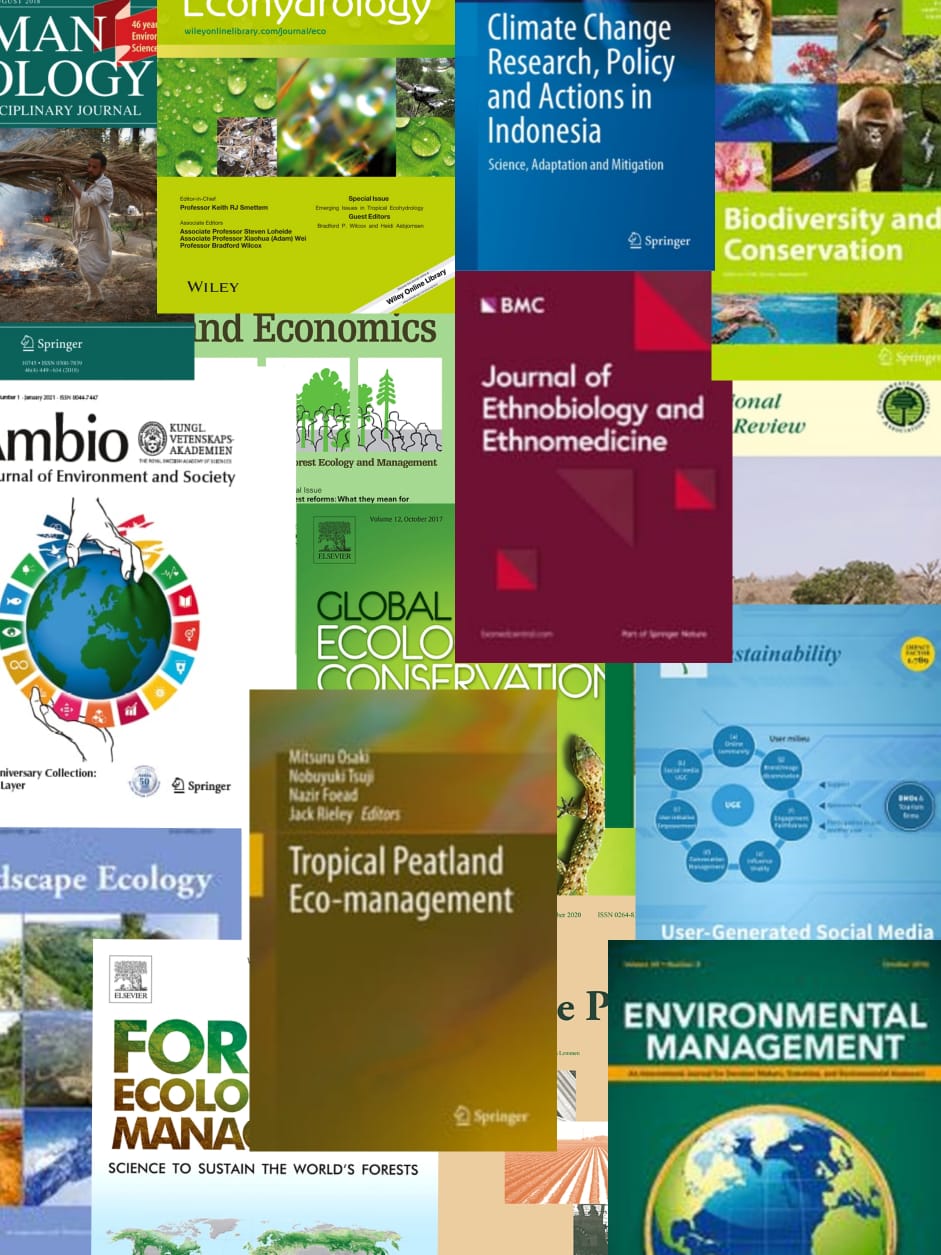Much of the peatland in Central Kalimantan is highly degraded because it has been cleared and drained over the last 30-40 years. Degraded peatland is highly susceptible to burning and oxidation and contributes 30-60 % of the annual greenhouse gas emissions of Indonesia. To combat these problems, the Government of Indonesia has made peatland restoration a high priority, with revitalisation of livelihoods being a critical component to help communities transition to rewet peat. We sought to understand this social transition in Tumbang Nusa, one of the villages that has had a high level of intervention through the recent peatland restoration efforts. Over the last five years, several new livelihood initiatives have been deployed in Tumbang Nusa including seven capacity building programs, five government assistance programs and 18 demonstration plots, but many of these initiatives have been unsuccessful, with only a handful of farmers having adopted the outcomes. In effect, the peatland has not been rewet and the community has largely not transitioned to a more sustainable set of livelihoods. To make peatland restoration work it is critical to overcome several barriers so that communities can embrace the restoration process and can drive it autonomously, rather than needing outside input and assistance to maintain momentum. There is also a clear need for a functioning carbon market, such that peatland communities benefit from peat rewetting. Only once the community directly benefits from restoration will it actively participate in ensuring its success.
View source

